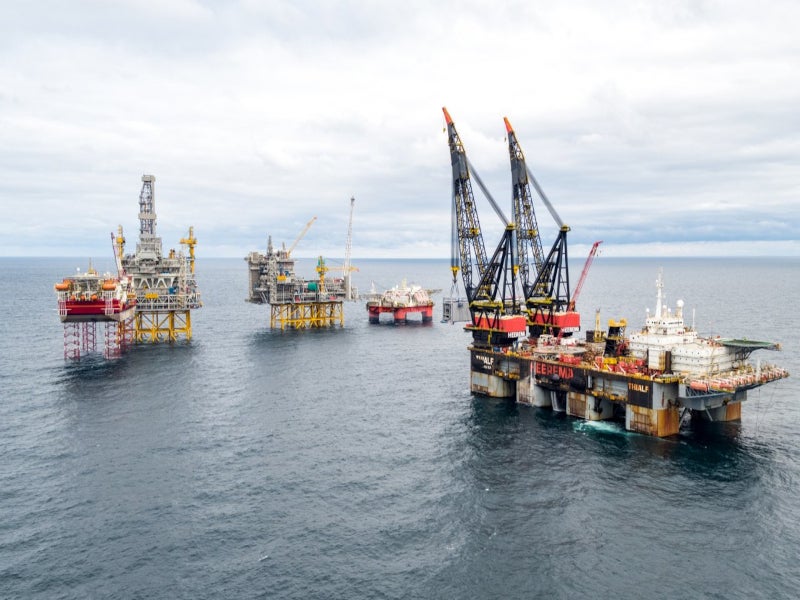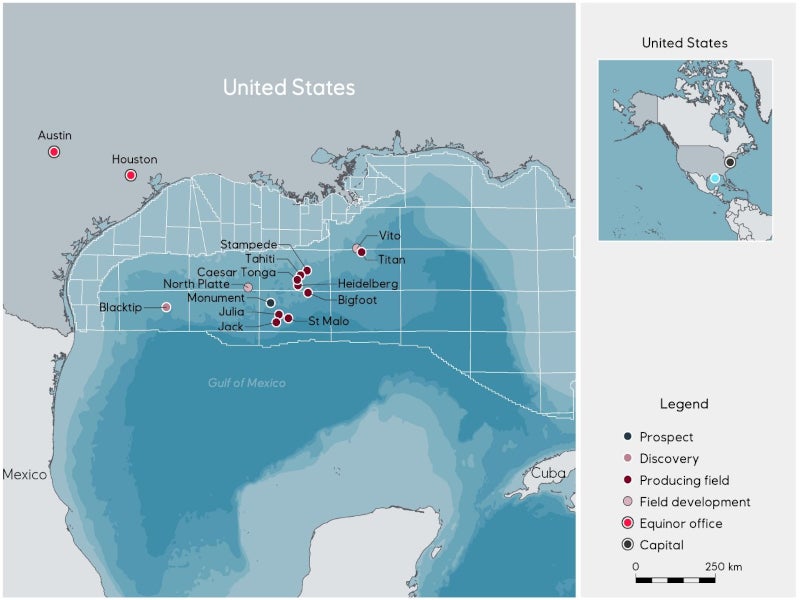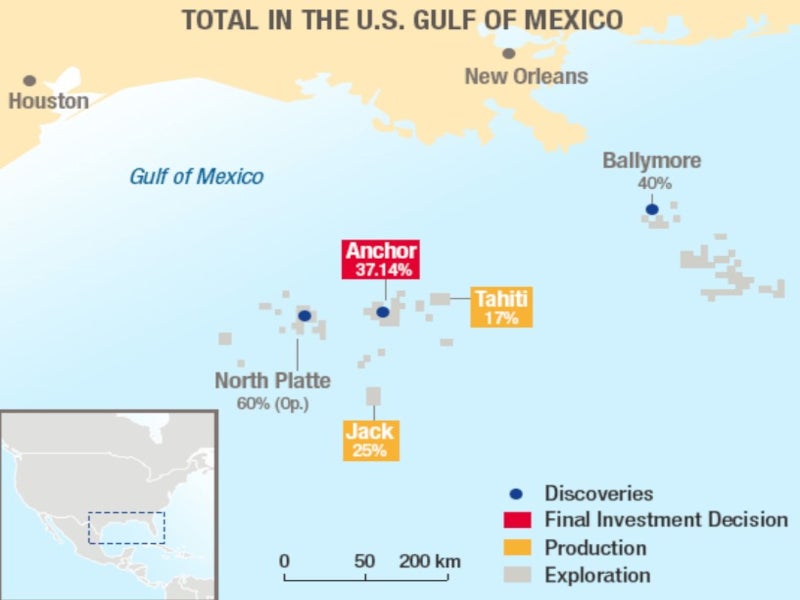The Sparta field, formerly known as North Platte, is planned to be developed in the 1,300m-deep waters of the Gulf of Mexico, 275km offshore Louisiana, US.
Cobalt International Energy (Cobalt) held a 60% operating interest in the North Platte discovery, while TotalEnergies (Total), a French oil and gas company, held a 40% non-operating interest.
In April 2018, Total acquired an additional 20% interest from Cobalt for $339m, as part of the latter’s bankruptcy auction sale in March 2018. Total’s interest in the field increased to 60% and the company became the operator.
Norwegian oil and gas company Equinor joined as a partner by acquiring Cobalt’s remaining 40% interest in North Platte.
The front-end engineering and design (FEED) for the project was launched in December 2019, and completed.
In February 2022, Total decided to withdraw from the North Platte deepwater project and relinquish the operatorship in order to allocate capital to more promising projects within its global portfolio.
Equinor sold its 51% stake in the field to Shell in June 2022 and retained 49% interest. Shell became the operator of the field.
The final investment decision on the project is expected to be taken in 2023.
Sparta location, discovery and reservoir details
The Sparta deepwater oil development project spans four blocks in the Garden Banks area of the US Gulf of Mexico and features a subsalt Paleogene reservoir at a water depth of 9,100m (30,000ft).
Total and Cobalt discovered the oil field by drilling an exploratory well to a total depth of 10,520m (34,500ft) in December 2012.
The discovery well intercepted several hundred feet of net oil pay and a number of high-quality intervals in the Lower Tertiary sandstones of the Wilcox Formation.
The field was subsequently appraised by three appraisal wells and three sidetracks.
Sparta is considered a high-quality asset both in terms of porosity and permeability, with the thickness of the reservoir exceeding 1,200m in several locations.
Sparta field development details
The deepwater oil field is planned to be developed by drilling eight wells from two subsea drilling facilities and tying back the subsea wells to a new, lightweight semi-submersible floating production unit (FPU) through two production loops. The FPU will be designed to accommodate additional tie-ins in the future.
The Sparta oil field is expected to produce 75,000 barrels of oil per day (bpd) at plateau level. The output will also include associated gas.
Contractors involved
Seatrium (formerly Sembcorp Marine) signed a letter of intent with Shell in August 2023 to perform construction work for the Sparta project. Seatrium is a provider of design and engineering services for the marine and offshore industries.
Worley, an engineering services company based in Australia, was contracted in May 2023 to provide engineering, design, procurement support, construction and commissioning assistance for the FEED, along with the detailed design and follow-on phases of Sparta’s development.
Worley had previously been contracted to perform FEED services for the project in January 2020, following the completion of the pre-FEED phase in August 2019.
It leveraged its FPU topside design capability along with its subsidiary Intecsea’s expertise in the design of the hull, mooring and subsea pipelines, to offer cost-effective, lightweight deepwater solutions.






